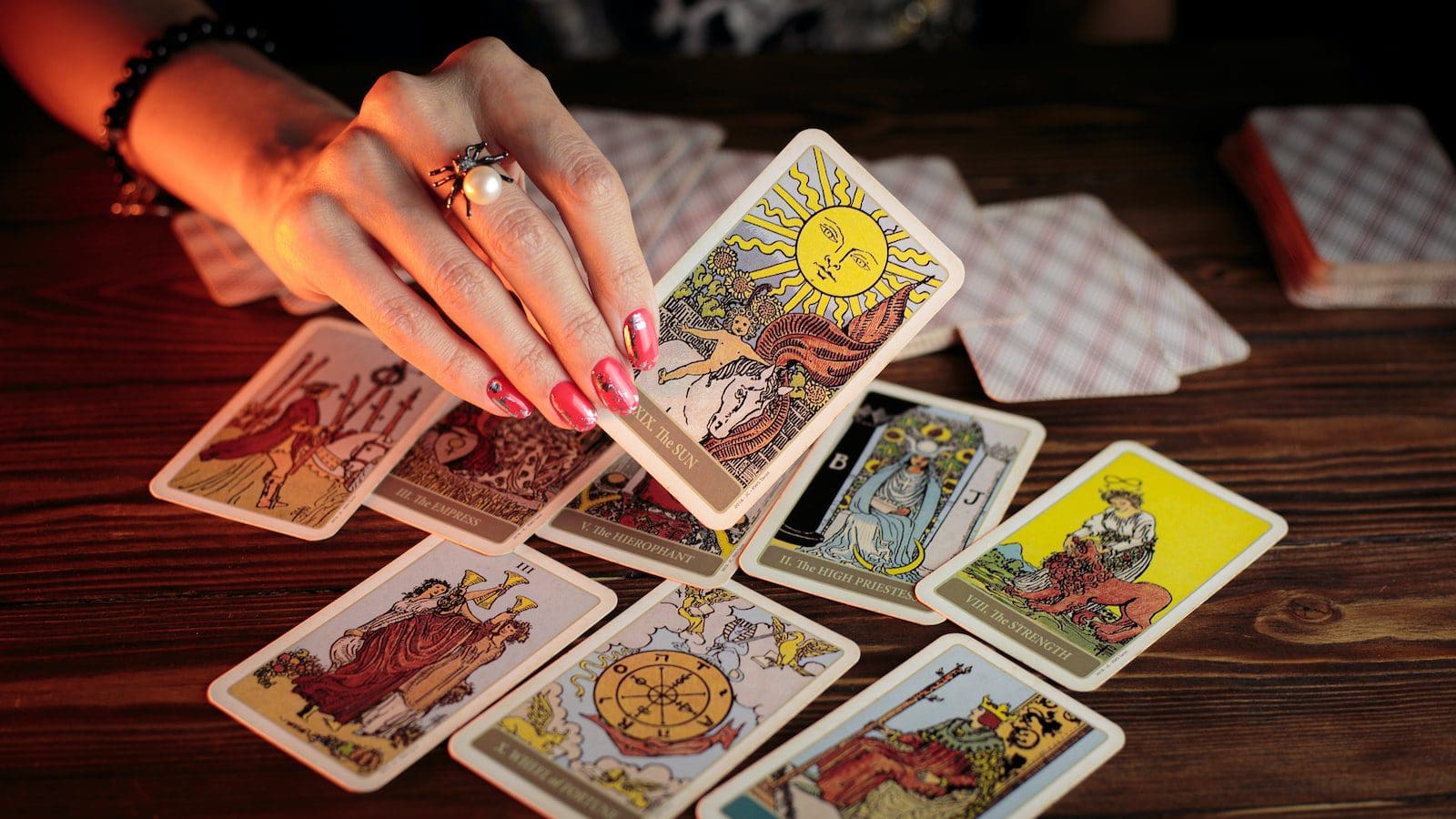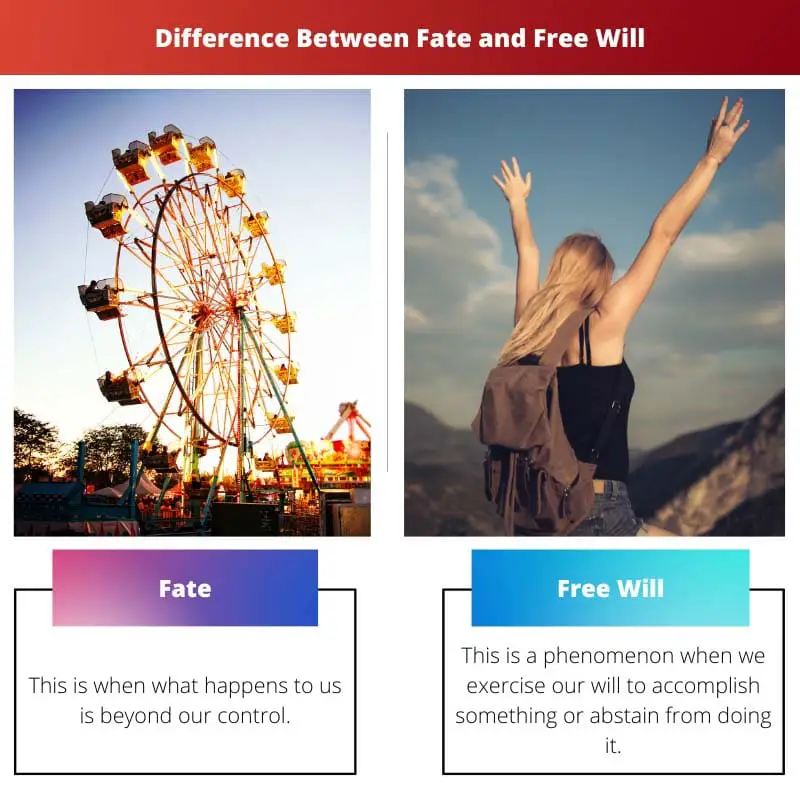Have you ever engaged in the debate of whether fate has supremacy over free will?
Surely, this is not a method of conclusively concluding about a person’s personality but is more of an aspect upon which you can infer the kind of person someone is.
Not only does it give you a fair insight into that person’s thought process, but it also demonstrates his depth of knowledge and understanding.
Key Takeaways
- We are responsible for our choices, thus exercising our free will.
- Fate is the idea that all events are predetermined and inevitable.
- Our actions can influence our future, but some believe fate cannot be altered.
Fate vs Free Will
Fate is seen as something that is pre-written by some high powers and can’t be changed. Life’s events are viewed negatively by fate. Free will is considered as a person’s own choices and they have control over their lives. Free will makes the person responsible for outcome of their life decisions.

Fate is a stretch of our imagination.
This is when we believe that our life is not always under our control, sometimes, it isn’t us seated in the driver’s seat but circumstances, and these circumstances, along with other elements, control the course of our lives.
When we come across new opportunities, we tend to believe that they result from manifestations beyond our control.
On the other hand, things can be described as exactly the opposite in the case of free will. It is a phenomenon when we exercise our will to accomplish something or abstain from doing it.
We employ our cognitive senses along with our other senses when exercising our free will.
Comparison Table
| Parameters of Comparison | Fate | Free Will |
|---|---|---|
| Meaning | This is when what happens to us is beyond our control | This is a phenomenon when we exercise our will to accomplish something or abstain from doing it |
| Presence of God | This is a concept that is set on the premise that what happens to us is pre-determined by the almighty. | God is not, but we are responsible for what we do |
| Control | It is believed that we have no control over it, but these are occurrences that are influenced by forces. | We have complete control over our actions, whether or not we are aware of their consequences. |
| Psychological Difference | In psychology, it is believed that we are each born with a fate | This is something that we figure out on our own with time |
| Example | Rakesh was walking back home when a bike hit him at full speed, which led to his death. | Rakesh was walking back home when he heard a bike approaching and moved aside even before the bike got close to him. |
What is Fate?
This is when we believe that our life is not always under our control, sometimes, it isn’t us seated in the driver’s seat but circumstances, and these circumstances, along with other elements, control the course of our lives.
When we come across new opportunities, we tend to believe that they result from manifestations beyond our control.
As per psychology, it is believed that we are each born with a fate. For instance, Rakesh was walking back home when a bike hit him at full speed, which led to his death.
This shows that it was fate, and the bike was meant to cause his death because all the factors were beyond his control.
Furthermore, it is also believed that we find assurance in this concept. Most than not, we try to escape liability by pinning our wrong actions on fate.
If there is something that happens and such happening is not something that was in alignment with our desires, then we label it as fate.
Sometimes it serves as a beacon of hope, and sometimes it is just an excuse.
If we pin our hopes on fate, then we will sit in anticipation of our fate taking control over our lives, and in turn, what will happen is what is meant to happen.

What is Free Will?
This is a phenomenon when we exercise our will to accomplish something or abstain from doing it. The possibility of God acting or shaping the course of our lives will sound ludicrous to those who believe in this concept.
It is reflected in all our actions or inactions. We have the gift of “judgment.” We can judge the consequences of an act even before doing it or the consequence of inaction even before refraining from doing it.
Based on this idea, it is only logical to state that we have complete control over our thoughts and actions, and if this is our reality, then what happens to us is indeed the result of our deeds and not the result of external forces directing the course of our lives.
For instance, Rakesh was walking back home when a bike hit him at full speed, which led to his death.
At a glimpse, it might appear that what happened to Rakesh was indeed fate, but on a closer look, the police found out that he was wearing his earphones and talking over a call while walking.
As a result, he couldn’t hear the bike, resulting in his death.

Main Differences Between Fate and Free Will
- Fate can be described as a stretch of one’s imagination and is something that happens to us but is beyond our control. On the other hand, Free Will is a phenomenon when we exercise our will to accomplish something or abstain from doing it.
- It is believed that Fate is a concept that is set on the premise that what happens to us is pre-determined by the almighty. In contrast, Free Will leaves no room for God. God is not, but we are responsible for what we do.
- When it comes to Fate, it is believed that we have no control over it, but these are occurrences that are influenced by forces. Whereas, in the case of Free Will, we have complete control over our actions whether or not we are aware of their consequences.
- In psychology, it is believed that we are each born with a Fate. However, Free Will is something that we figure out on our own with time.
- From a religious angle, Fate is when we believe that we have received a signal from the almighty. On the other hand, Free Will is our desire to either follow or abstain from following such a signal.




